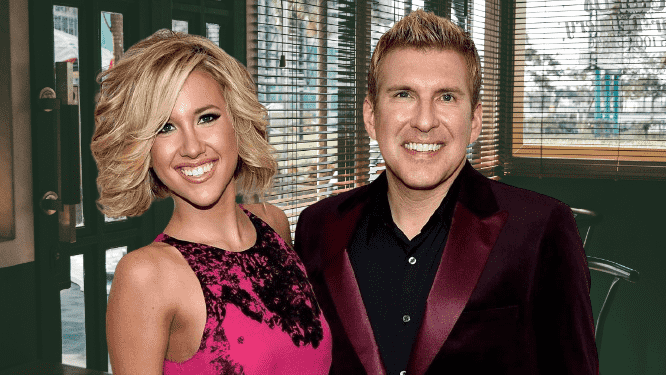Contents
Introduction to the hoax
In this era of instant information and viral rumors, it’s no surprise that even celebrities aren’t spared from fake news. One such case involves the well-known reality TV family, the Chrisleys, who were caught in a whirlwind of false rumors when reports started circulating about their beloved daughter’s untimely demise.
The shocking news spread like wildfire across social media platforms and stunned fans and followers. But as we delve deeper into this perplexing hoax, we uncover the truth behind what happened – revealing the impact on the Chrisley family and shedding light on the dangers of spreading fake news in today’s digital age.
Join us on this rollercoaster journey as we unravel how an innocent mistake spiraled out of control and led to a wave of misinformation reaching millions around the globe. Let’s separate fact from fiction and expose those perpetuating this heartbreaking deception.
How did the hoax about Chrisley Knows Best daughter dying manage to spread like wildfire across the internet? A single tweet was all it took to set things in motion. A mischievous user decided to play a cruel trick on fans of the popular reality TV show by posting a shocking message claiming that one of the daughters had tragically passed away.
Within minutes, this false information began to gain traction. People retweeted and shared it without bothering to fact-check or verify its authenticity. The news quickly made its way onto various social media platforms, where it was met with an outpouring of grief and condolences from well-meaning fans.
As more and more people became aware of the supposed tragedy, major news outlets picked up on the story and ran with it without any verification. Sensational headlines were published, further fueling the hysteria surrounding this heartbreaking event.
The impact on the Chrisley family cannot be understated. Imagine waking up one morning only to discover that your loved one’s death is being reported as fact all over the internet. Todd Chrisley, patriarch of the family, took to social media in disbelief and anguish as he vehemently denied these false claims while urging others not to believe everything they read online.
It wasn’t long before vigilant fans started questioning the validity of these reports. They dug deep into reliable sources for any shred of evidence supporting such a tragic event but found nothing substantial. Slowly but surely, doubts arose about whether this was true or just another elaborate hoax designed to deceive unsuspecting individuals.
Eventually, reputable news outlets issued retractions and apologies for their irresponsible reporting based on inaccurate online information. The truth finally emerged – there was no basis for these rumors; they were utterly baseless from start to finish.
This incident is a stark reminder of how easily misinformation can spread in today’s digital age. It highlights our collective responsibility as information consumers to approach news stories cautiously and critically. We must resist the urge to share or retweet without unquestioningly.
The impact of the hoax on the Chrisley family
The impact of the hoax on the Chrisley family was nothing short of devastating. Imagine waking up one day to find out that your daughter, whom you love and cherish, has supposedly passed away. It’s a heart-wrenching experience that no parent should ever go through.
For Todd and Julie Chrisley, this cruel hoax was not only emotionally distressing but also had far-reaching consequences for their personal lives and reputations. The news spread like wildfire, with people expressing their condolences and sharing messages of support for the grieving family.
But amidst all the chaos and confusion, some questioned the authenticity of the rumors. Friends and fans rallied behind the Chrisleys, trying to debunk these false reports by spreading awareness about the truth.
Despite their best efforts to set things straight, it took time for the truth to emerge from beneath this web of lies. Unfortunately, in today’s age of social media and rapid information dissemination, falsehoods can travel faster than facts.
The toll this ordeal took on Todd and Julie cannot be underestimated. Not only did they have to cope with grief that wasn’t real – they also had to deal with unwanted attention from both well-meaning sympathizers as well as curious onlookers wanting a piece of their pain.
As individuals consuming news online or participating in conversations online, we must exercise caution before jumping to conclusions based solely on viral misinformation. In our quest for instant gratification or an emotional connection with celebrities’ lives, we must remember that real people are affected by these hoaxes – people who deserve empathy rather than judgment or mockery.
Let us learn from incidents like these; let them remind us that responsible media consumption is crucial in today’s digital landscape, where anyone can become a source of information without any accountability. By fact-checking before sharing content or engaging in discussions online, we can help minimize the harm caused by fake news while maintaining respect toward those involved.
The Chrisley family showed resilience and strength in the face of this hoax. They
Debunking the false rumors
Debunking the false rumors surrounding the alleged death of a member of the Chrisley family is crucial to setting the record straight and dispelling any further misinformation. Unfortunately, such hoaxes gain traction, causing unnecessary distress and confusion among fans.
Upon closer examination, it becomes evident that these rumors have no truth. Various reliable sources have confirmed that no tragedy has befallen any member of the Chrisley family. They continue to live as usual and are active on social media platforms, sharing updates about their daily activities.
Individuals must exercise caution when consuming news on social media or online platforms. The ease with which false information can spread requires us to be vigilant and verify facts before accepting them as genuine. This incident serves as a reminder of how easily fake news can circulate and cause unwarranted panic.
Spreading false rumors creates unnecessary stress for families like the Chrisleys and undermines trust in legitimate news sources. It’s important for individuals to critically evaluate information before sharing it with others, ensuring its accuracy through reputable sources or official statements.
In an era where anyone can create and share content online, distinguishing between fact and fiction becomes even more vital. By promoting responsible media consumption habits, we can collectively combat misinformation by refusing to give it undue attention or perpetuate its dissemination.
As information consumers, let’s prioritize critical thinking skills when encountering sensational headlines or shocking stories without verified sources. Together, we can foster a culture where accurate reporting prevails over baseless rumors – ultimately safeguarding our well-being and those in the public eye from needless distress caused by unfounded reports.
The dangers of spreading fake news
The dangers of spreading fake news cannot be overstated. In today’s digital age, misinformation spreads like wildfire, causing panic and distress among the general public. It is crucial to understand the potential consequences before sharing information that may not be accurate.
Spreading fake news can have profound implications for the individuals involved. In the case of celebrity death hoaxes, such as the ‘Chrisley Knows Best Daughter Dies’ hoax, it can cause immense emotional turmoil for both the celebrities and their families. Imagine waking up to headlines proclaiming your loved one has passed away when they are perfectly alive. The emotional toll can be devastating.
Furthermore, fake news erodes trust in media outlets and sources of information. When false stories circulate widely online, it becomes increasingly difficult to discern fact from fiction. This leads to a society where truth is obscured by sensationalism and rumors.
Spreading fake news can also have real-world consequences on businesses and communities. Fake reports about a company’s financial troubles or product defects can damage its reputation and lead to financial losses or layoffs. Similarly, spreading false rumors about an individual or community can incite hatred or discrimination.
Similar celebrity death hoaxes in the past
It’s not the first time that death hoaxes have targeted celebrities. Unfortunately, these rumors spread like wildfire in today’s digital age. One notable example is the fake news surrounding actor Morgan Freeman’s death back in 2012. The story claimed that he had died while filming a movie in New Zealand. Thankfully, it was quickly debunked, and Freeman addressed the hoax, assuring his fans that he was alive and well.
Another celebrity who fell victim to a death hoax is Betty White, a beloved actress known for her roles in “The Golden Girls” and “Hot in Cleveland.” In 2014, false reports circulated online claiming that she had passed away at the age of 92. However, White proved them wrong by declaring herself as one of “the luckiest old broads” during an interview on “The Tonight Show with David Letterman.”
Even Keanu Reeves has not been spared from these unfounded rumors. In 2009, widespread reports were suggesting that he had died after falling off a mountain while shooting a film. Of course, this was nothing more than a baseless rumor.
These instances are stark reminders of how easily misinformation can spread on social media platforms and other online channels. Users must verify the information before sharing or believing it unquestioningly.
Conclusion and call for responsible media consumption
The false rumors surrounding the death of a Chrisley Knows Best daughter have caused immense distress to both the family and their loyal fanbase. This hoax is a stark reminder of the power and dangers of spreading fake news in today’s digital age.
While it can be easy to fall into the trap of sensationalism or to believe everything we read online, we must exercise caution and critical thinking when consuming media. We must remember that behind every story, real people with real emotions can be deeply affected by false information.
In this case, Todd Chrisley took to social media to debunk the hoax, expressing his frustration at how quickly false information can spread like wildfire. The impact on his family cannot be underestimated – dealing with such rumors can cause unnecessary stress anxiety, and even harm relationships.
As media content consumers, we are responsible for verifying information before sharing it further. Fact-checking websites and reliable news sources should always be consulted before accepting anything as accurate. By doing so, we protect ourselves from falling victim to misinformation and help prevent its further dissemination.
Furthermore, social media platforms must be more robust against fake news propagation. They should implement stricter guidelines for verifying content before allowing it to go viral. They must prioritize accuracy over virality to maintain trust among users.
As individuals, let us commit ourselves to being responsible media consumers by critically analyzing what we see or hear before accepting it as fact. Let us value truth over sensation and seek reliable sources for accurate information.
Latest Articles!



